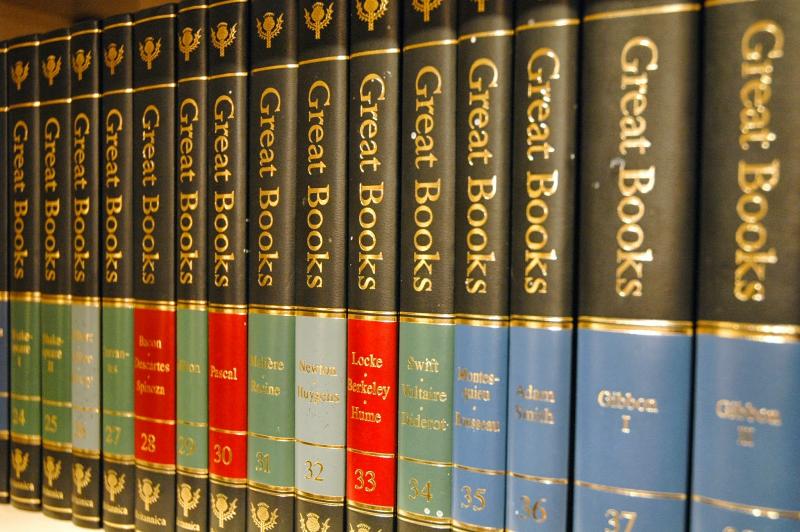The 10 Best Books of 2021 - WSJ
By: WSJ



All the Frequent Troubles of Our Days: The True Story of the American Woman at the Heart of the German Resistance to Hitler
By Rebecca Donner | Little, Brown
Mildred Harnack, a progressive-minded academic from Milwaukee, taught American studies in Berlin during the rise of Hitler. Now her great-great-niece—a meticulous researcher and master of narrative suspense—tells how Harnack, from the early 1930s to 1942, openly defied Nazism, built a brave, effective but doomed circle of like-minded resisters, and was murderously hounded by the Gestapo. Here is a historical biography that reads like a literary thriller.
Finding the Mother Tree: Discovering the Wisdom of the ForestBy Suzanne Simard | Knopf
Suzanne Simard’s discovery of fungal networks beneath the forest floor upended prior understanding of the forest itself by unveiling a “Wood Wide Web” of tree-and-fungi symbiosis. Beginning from her early work on plant cooperation and communication, Ms. Simard traces her career as a “troublemaker” who challenged botanical orthodoxy and the prejudices of colleagues. This often-lyrical memoir champions the link between personal insight and scientific revelation.
HarrowBy Joy Williams | Knopf
The apocalyptic fantasy—the most hackneyed, oversaturated genre in contemporary literature—receives a much-deserved kick in the tail with this cracked, morbidly hilarious novel. Elderly ecoterrorists, a confused quasi-messiah, a Kafka-quoting child magistrate, an oddly indifferent totalitarian regime: all feature in a splintered vision of environmental collapse that seems somehow both gleefully nihilistic and yearningly spiritual.
An Inventory of LossesBy Judith Schalansky, translated from the German by Jackie Smith | New Directions
“Writing cannot bring anything back,” Judith Schalansky writes in this meditative, hopeful collection of linked essays, “but it can enable everything to be experienced.” Elegantly translated by Jackie Smith, these 12 pieces consider submerged Pacific islands, extinct animal species, architectural ruins and tantalizing lacunae in ancient Greek manuscripts. Disappearance may be a forlorn theme, but it has rarely been granted such reverent contemplation, or been made to feel so powerfully tangible.
Look for Me and I’ll Be GoneBy John Edgar Wideman | Scribner
This collection, published in the author’s 80th year, finds John Edgar Wideman at the apogee of his considerable powers. Seamlessly fusing history with personal tragedy, the stories present swirling collage-portraits of the black American experience. Notes of vulnerability add layers of pathos. Though cleaved by doubts about the purpose of his writing, Mr. Wideman remains desperately committed to recording “the long, crowded passage of time within each moment.”
The Netanyahus: An Account of a Minor and Ultimately Even Negligible Episode in the History of a Very Famous FamilyBy Joshua Cohen | NYRB
Joshua Cohen has long been lauded for his brilliance with language, but in this short novel he harnesses that verbal dexterity to a taut, thrillingly told story in which the trappings of a midcentury suburban setting disguise a sharp and topical political inquiry. Drawing on—and subverting—both the campus satire and the traditional Jewish-American novel, Mr. Cohen fashions an ingenious and witty parable about the ambiguities of Zionism.
Robert E. Lee: A LifeBy Allen C. Guelzo | Knopf
Robert E. Lee never fit into his own country—either of them. Allen Guelzo presents the rebel general as a Southern aristocrat in the age of Jacksonian democracy, whose brilliance on the battlefield was undercut by a disdain for the day-to-day politics of the Confederacy. Without indulging in culture-war polemics, this biography carefully weighs Lee’s culpability in committing treason, defending slavery and failing to foster postbellum racial reconciliation.
The Strategy of Denial: American Defense in an Age of Great Power ConflictBy Elbridge A. Colby | Yale
China cannot be contained. It cannot be appeased. It must instead be denied its immediate geopolitical goals and its long-term plans for economic, military and ideological domination in what many pundits call “the coming Chinese century.” Elbridge Colby, the lead architect of the 2018 National Defense Strategy, here lays out—realistically, concretely and in plain-spoken American English—how Washington must act decisively to check Beijing’s growing power and ambition.
The Transcendentalists and Their WorldBy Robert A. Gross | Farrar, Straus & Giroux
Concord, Mass., was the center of America’s first cultural great awakening, the place where Emerson, Thoreau and others created a rich ferment of philosophy and literature. It was also a small New England town, containing only about 2,000 souls in the mid-19th century, and Robert A. Gross has written the authoritative account of the parochial politics and idiosyncratic social scene of this nation-defining time and place.
Voyagers: The Settlement of the PacificBy Nicholas Thomas | Basic
Some 3,500 years ago, Asian sailors set out in open canoes to lay the first strands of what would become the far-flung web of South Pacific island cultures, linked by language and trade, that we now call Polynesian and Melanesian. How and why did these explorers cross vast ocean distances to unseen landfalls? In “Voyagers,” Australian-born anthropologist Nicholas Thomas takes readers on a narrative odyssey to match their intrepid journeys.


